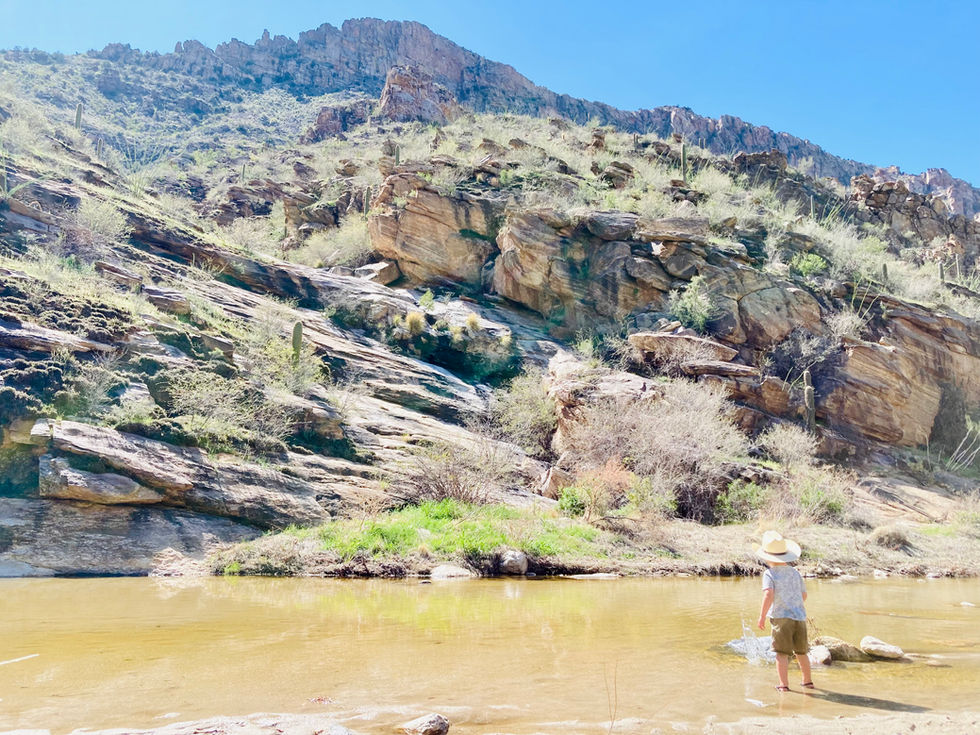BENJAMIN
KEOSEYAN
philosopher

About
I am a philosopher and classicist. I am an Assistant Professor of Philosophy (tenure-track) in the Harriet L. Wilkes Honors College of Florida Atlantic University, in sunny Jupiter, Florida. I received my Ph.D. in philosophy in January 2025 at the even sunnier University of Arizona, with a dissertation on Plato's political philosophy under Julia Annas and Thomas Christiano. Before that I completed my M.A. in philosophy at the not-so-sunny Northern Illinois University.
My current research focuses on the role that law plays in Plato's political theorizing in the Republic and the Laws. I believe there is still more to learn from Plato about just how we should use law in the best political constitution, and explore this in my research. I am also currently writing on the way that Cicero's academic skepticism manifests in his political dialogues—the De Republica and the De Legibus.
Research
PDFs of all papers available upon request
Cicero's Academic Skepticism and his Political Dialogues
This research project tries to solve a puzzle in Cicero’s political works. Cicero’s De Republica and De Legibus are regarded as some of the most influential texts in the history of constitutionalism, and present confident and sustained arguments for such ideas as the importance of political involvement in a republic and natural law theory. Yet we know that Cicero was an academic skeptic, and did not think we could have knowledge regarding such matters. In the past, scholars took these dialogues to belong to a period where Cicero abandoned skepticism, thus explaining the apparently non-skeptical style of argument in them. But nowadays, the consensus is that Cicero was a skeptic throughout his life; so whence the lack of skepticism in these dialogues?
In “Ring Composition and the Skepticism of the De Republica” (Polis: The Journal for Ancient Greek and Roman Political Thought, 2024) I propose a novel interpretation of the De Republica, which has two main virtues: first, it explains how the apparently unconnected fragments of the dialogue form a cohesive literary whole (as we might expect from a master orator as Cicero) with a main argument against the Epicurean prohibition on political involvement; second, it explains how this sustained defense of the political life (contra the Epicureans) is compatible with Cicero’s skepticism, and is in fact an instance of his Academic skeptical teaching method.
In “Is the De Legibus a Skeptical Dialogue?” (under construction) I explain how the De Legibus is consistent with Cicero's commitment to academic skepticism.
These articles form the backbone of one of my book projects. I plan to write a book that is accessible for a popular audience, in which I discuss what Cicero has to teach us about doing politics without knowledge.
Entrenchment in the Republic and the Laws
In “Entrenchment of the Laws in Kallipolis?” (forthcoming at Ancient Philosophy), I describe how Plato uses legal entrenchment as a safeguarding mechanism against abuses of political authority in the guardian class. While recently scholars have highlighted some of the safeguarding mechanisms in the constitution of Kallipolis, my article is the first to argue that Plato intended some of the laws of Kallipolis—specifically the laws concerning guardian education—to be utterly unchangeable, even for the guardians.
In “Legal Entrenchment in the Constitution of Plato's Laws” (draft), I argue that Plato intended for all the laws of Magnesia to be entrenched after a ten-year initial draft period for the constitution. I argue against those scholars who view a famous passage in book 6 to imply a constitutional power to change law, and argue against the view that the notorious Nocturnal Council described in books 10 and 12 has some power to change law. Being neither an office nor an official part of the constitution, their role resembles that of a university, promoting philosophical understanding of the laws among the citizens of Magnesia.
The Rule of Law in Plato
Jeremy Waldron expressed a common view among scholars when he wrote that “The heritage of argument about the Rule of Law begins with Aristotle”. This view, I believe, is ill-founded. In “The Rule of Law in Kallipolis?” (under review), I argue that Kallipolis---the ideal city of the Republic---embodies the rule of law in a way identifiable to contemporary legal theorists. I explain in detail the extent to which Kallipolis satisfies Gerald Postema's three principles of "the core ideal of the rule of law" in his 2022 Law's Rule.
In "The Rule of Law in Magnesia" (draft), I argue that the constitution of Magnesia embodies the rule of law in the same way, satisfying Postema's principles. I argue against David Cohen's interpretation of rule of law as a collective fiction in Magnesia. Cohen, I argue, fails to account for the fact that Plato understands law as a robust theological reality, in both the Laws and indeed also the Philebus.
Early Greek Political Thinking About Law
Though Plato was the first to write systematically about entrenchment and the rule of law, he was not the first Greek to think about these ideas. In "Plato's Debt to Solon"
(under review) and “Philosophy of Law in the Circle of Socrates” (draft), I describe the precursors to Plato who thought about these two legal concepts. Writings about Solon and the fragments attributed to him, I argue, both indicate that the ideas of entrenchment and eunomia (understood as rule of law) were present in the archaic period. I analyze the philological evidence for an understanding of eunomia as something like Rule of Law in the archaic period. Further, Xenophon’s Memorabilia, Plato’s Crito, and Anonymous Iamblichi indicate that these same ideas were discussed in the Circle of Socrates.
My articles about Plato and his precursors on law are part of a book project I am working on, which is a continuation of my dissertation project. In it, I trace the origins of our ideas of rule of law and legal entrenchment to Plato and those who influenced him. I argue, among other things, that Plato was a natural law theorist, that Plato was a constitutionalist, and that in both the Republic and the Laws, what really rules is law itself, which on Plato's cosmology turns out to be an expression of divine Reason.
Relatedly, I am organizing a panel at the 2026 International Society for Neoplatonic Studies in Belgium, called Nomos, Nous, and Nature: The Neoplatonic Reception of Plato's Idea of Law. Since Plato's ideas about law seem to emanate from his ideas about the cosmos, it seems that more can be said about political philosophy in late-antique Platonism than is commonly assumed. If you have a paper that fits this topic, please contact me.
Teaching
as primary instructor:
Honors Ancient Philosophy
FAU, Fall 2025
I begin my ancient philosophy course with a discussion of the historical Socrates and Plato's Socrates, looking at the Euthyphro, Apology, and Crito. Then we read all of the Republic, and discuss questions of Platonic chronology, as well as Platonist ethics, moral psychology, metaphysical-epistemology, and political philosophy. I introduce some pre-Socratic thinkers along the way, to give some context to Plato's metaphysics. Then we shift to Aristotle's hylomorphism as a response to Plato's metaphysical-epistemology, and discuss Aristotle's ethics and politics. I finish the course with a unit on Hellenistic philosophy, with a focus on how each major Hellenistic school aimed at ataraxia. The students are encouraged to try out living like an Epicurean, a Stoic, and a Pyrrhonist during the last weeks of the semester. Outlining arguments is a major component of my ancient philosophy course, as I believe that outlining arguments is one of the most valuable skills undergraduate students can learn.
Foundations of Reasoning
Pepperdine University, Fall 2024, Spring 2025
This is a discussion-based course that seeks to teach students to think well. It owes a lot to Meghan Sullivan’s God and the Good Life course at Notre Dame, and is a mixture of intro to philosophy, a bit of logic, Great Books, philosophy of religion, and the meaning of life. It is mandatory for almost all first-year students at Seaver College.
A Guided Tour of Plato's Republic
University of Arizona, Summer 2024, Fall 2023, Fall 2021
This is an upper-level philosophy course for philosophy and classics students at University of Arizona. In it, we closely read Plato’s Republic, as well as Julia Annas’s An Introduction to Plato’s Republic. Students hone their skills reconstructing and evaluating first Annas’s interpretations of Plato’s arguments, then their own interpretations of the arguments from the text. My lecture videos for this course are approved by the philosophy department for use by other instructors teaching it at Arizona.
Logic
FAU, Fall 2025; Pepperdine University, Summer 2022, Summer 2020
This course is an introduction to formal logic, and satisfied math general education requirements at both FAU and Pepperdine. We focus on translating natural language arguments into formal languages, including sentential logic and first-order logic. Students learn truth table, truth tree, and natural deduction methods for testing validity with SL and QL.
An Introduction to Aristotle
University of Arizona, Fall 2022
This is a discussion-based, upper-level philosophy course for philosophy and classics majors at University of Arizona. In it, we read selections from Aristotle’s work, as well as the entirety of Jonathan Lear’s fantastic Aristotle: the Desire to Understand. Students reconstruct and evaluate Lear’s interpretation of Aristotle, and give their own interpretations of Aristotle. I focus on helping students to see Aristotle’s various views as part of the impressive philosophical system of Aristotelianism, while flagging the tensions present between (and indeed within) Aristotle’s different works.
Environmental Ethics
University of Arizona, Summer 2021, Fall 2020
This is a survey of the ethical problems related to the environment and our place in it. I use Dave Schimdtz and Danny Shahar’s excellent Environmental Ethics: What Really Matters, What Really Works. We start in the nineteenth century, with Marsh, Emerson, and the debate between Gifford Pinchot and John Muir, then learn about Aldo Leopold’s Land Ethic. The bulk of the course is spent on evaluating arguments in contemporary writings on environmental issues, including rewilding, trophy hunting as conservation, and animal liberation.
Philosophy of Happiness
University of Arizona, Summer 2020
This is an introductory ethics course with a special focus on hedonism, eudaimonism, and existentialism. In it, we read and discuss a very broad selection of philosophers, including Plato, Aristotle, Epicurus, Annas, the Daodejing, Nozick, Parfit, Mill, Nietzsche, Camus, and others.
as discussion instructor/teaching assistant:
The Classical Mind
Catholic University of America (Tucson Program), Spring 2024, Spring 2023, Fall 2022
The Modern Mind
Catholic University of America (Tucson Program), Fall 2023
Logic and Critical Thinking
University of Arizona, Fall 2019
Classical Mythology
Northern Illinois University, Fall 2018, Spring 2019
Contact Me
Benjamin Keoseyan
Hibel Fine Arts Building 125
Harriet L. Wilkes Honors College
Florida Atlantic University
5353 Parkside Drive
Jupiter, FL 33458
Email: bkeoseyan at fau dot edu
Telephone: (seven-o-four) 604 . 8703







